Moral Noor Mohammad (Ashoka Fellow,USA)
the personality behind establishment of RUSTIC
Moral Noor Mohammad was born in 1951, at Bailtali village of Piljanga union, Fakirhat Upazilla in Bagerhat district of Bangladesh. In 1970, he earned a bachelor's degree in social science. As a freedom fighter, he joined in the liberation war of Bangladesh in 1971.
From 1972-1987, he worked as a social worker and activist in the southwest coastal region of Bangladesh. He along with a group of social enthusiasts started raising awareness, capacity building, preparing an action plan, and implementation with technical and financial support for the poverty-stricken marginalized community. Afterward, in 1988, this group emerged as RUSTIC, a voluntary social development organization, and eventually got recognition home and abroad. Hence, it becomes the part and parcel of his life to carry on his duties through the organization’s intervention.
Since 1997, he has been working with urban slum households in Khulna City Corporation to manage solid waste and produce organic compost fertilizer through collecting household garbage from door to door to support the slum dwellers by creating employment through engaging them in waste management and organic compost fertilizer producing process.
To conserve the snail biodiversity, he started vermin-compost and vermin-culture as fish feed for shrimp cultivation through the decomposition process using earthworms. With his initiative of biogas plant transforms household waste into usable gas for cooking and organic fertilizer.
He initiated an experiment on farming freshwater lobster Post Larvae (PL) in cages, a new concept in Bangladesh. The development of PL cage culture by poor communities is supported through technologies appropriate to their social, economic, and environmental context.
Considering experience, commitment, diligence, and outstanding achievement under his leadership he got recognition as Ashoka Fellow, USA, Climate Hero Award, HSBC, Bangladesh, NONA FISHER CORNERSTONE Award, WINROCK International, USA, and Paribesh Padak (Environment Award), Bangladesh.
Presently, he has been working through taking initiatives to address problems for climate refugees especially adolescent girls who migrated from southwest coastal villages. The migrated girls in the urban slum are being supported by providing non-formal education with skill development training for creating income-generating activities (IGA).
He has been providing a solution for the vulnerable community through a rainwater harvesting system to reduce waterborne health risks resulting from climate-related safe water scarcity in southwest coastal Bangladesh.
He has been serving as an Executive Director in RUSTIC since 1988. He took initiatives to produce organic compost by applying recycling techniques of household wastages usable for agricultural framing and assisting and motivating farmers to use this compost in their farming land. As a result, it’s creating a wastage and pollution-free healthy environment on one side, on the other hand, decreasing the possibility of carbon emission. Meanwhile, RUSTIC has developed an organic composting plant namely RUSTIC-Composite Organic Fertilizer Industries Ltd.
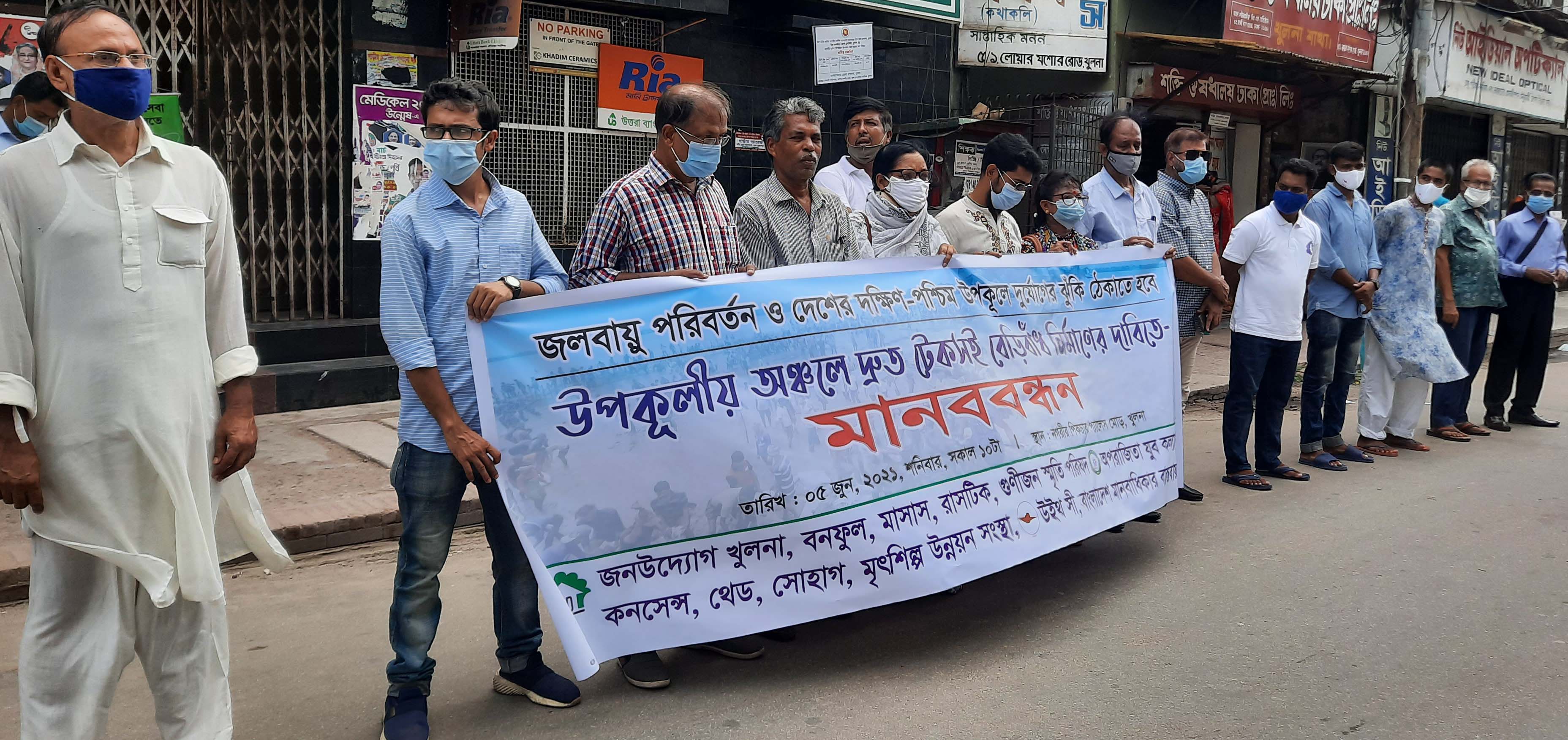 World Environment Day
World Environment Day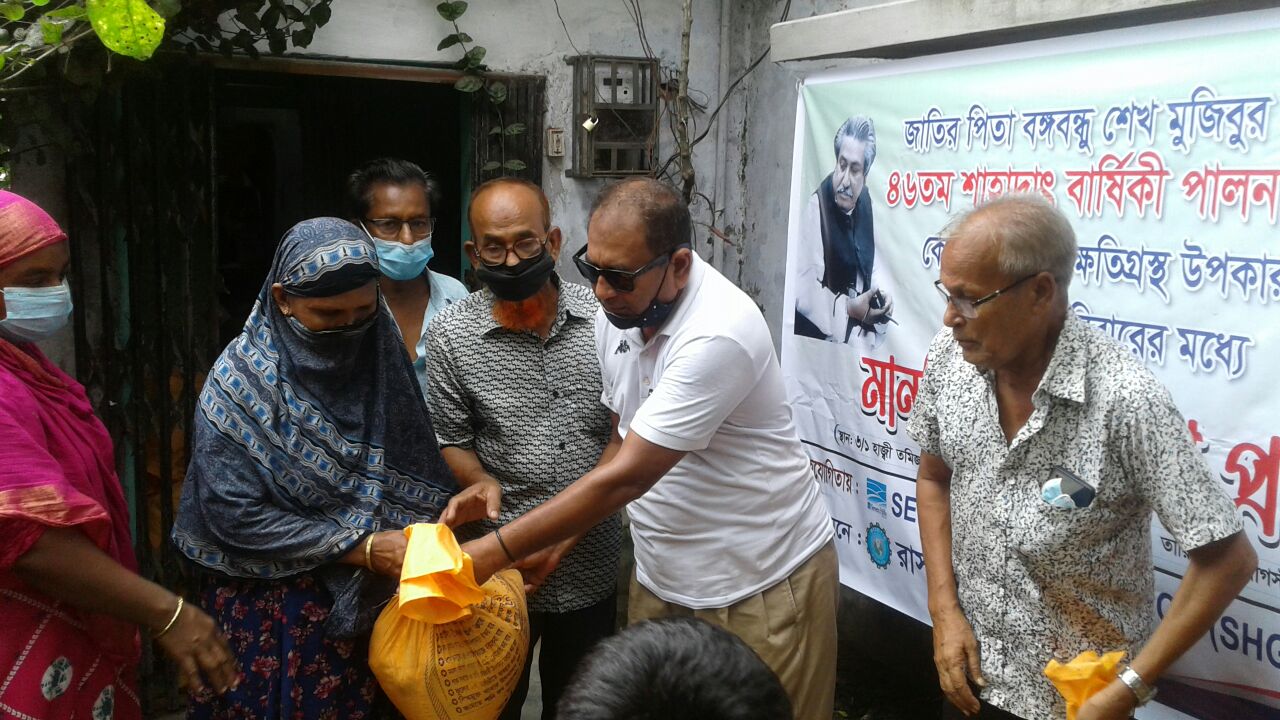 Food distribution for the disadvantaged community
Food distribution for the disadvantaged community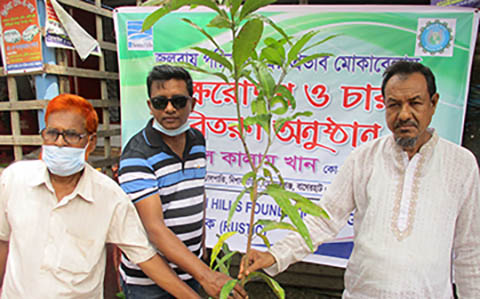 Tree Plantation for a green future
Tree Plantation for a green future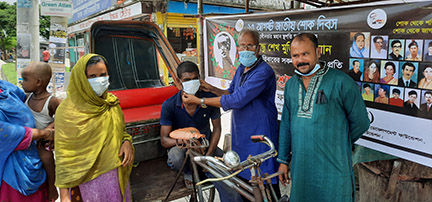 Distribution of personal safety materials to the disadvantaged community
Distribution of personal safety materials to the disadvantaged community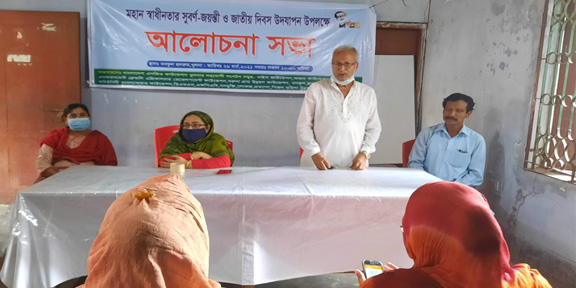 Observance of national days with the disadvantaged community
Observance of national days with the disadvantaged community